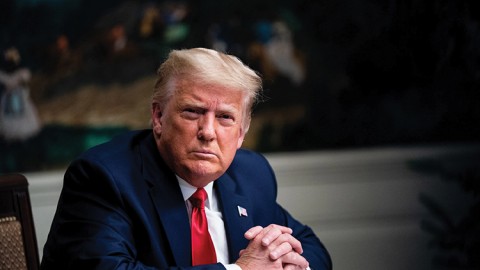Deregulation has been the subject of debate between economic intellectuals on all sides of the political aisle. On one side of the spectrum, an argument can be made that deregulation of the downstream sector increases competition but gives too much control to the private sector, especially when it comes to product prices. The other side says that in order to build a healthy downstream sector, deregulation must be the foundation for creating a more flexible market. The role of regulation in this context would be to effectively ensure healthy competition. When studying various markets around the world, it is found that deregulation in the downstream economy is really the secret economic recipe strategists should be looking for in order for the sector to be performing at its full potential.
Investment attraction is one of the first and most important advantages of deregulation since it ensures that the market not only has a flexible framework to work within but also protects stability while utilizing effective policies and legislation to protect the rights of investors and stakeholders in the private downstream industry. With investment being a key component for building the infrastructure needed for the effective distribution of oil and gas products, it goes hand-in-hand with the growth of any downstream sector. “Deregulation of the downstream oil industry will attract more foreign investors, eliminate the shortage of refined petroleum products, and combat refined petroleum commodities’ smuggling around the country’s boundaries,” it said in the study titled “Deregulation of the Downstream Petroleum Industry: An Overview of the Legal Quandaries and Proposal for Improvement in Nigeria” by Olusola Joshua Olujobi from Elizade University’s Faculty of Law.
Taking a resource-rich country such as Nigeria as an example, deregulation can play an effective role in eradicating supply issues with effective implementation. “Total deregulation of downstream petroleum has the potential to shape the price increases of petroleum commodities. It will end huge revenues spent on fuel subsidies. It will enhance petroleum commodities availability in Nigeria and eradicate endless queues at filling stations for non-existent petroleum products in some parts of the country. Full price deregulation is the bedrock of any long-term reform within the downstream petroleum for transparency in the sector,” Olujobi’s study said. It added, “Nigeria has large petroleum product supply gaps. The lack of working refineries and heavy pressure on infrastructure from resultant importation has been critical cause of supply shortages. Total deregulation of downstream petroleum will end petroleum commodities scarcity in Nigeria and promote effectiveness in the sector. There is room for further research to gain additional insights into different dimensions to address deregulation.”
Hoarding is a typical example of the many issues that an economy faces in a highly regulated environment. With hoarding being a common practice, a free-floating price model for oil and gas will ensure competition while preventing one party from taking advantage of generous subsidies (that were originally made to benefit consumers) to buy too many quantities, thereby creating severe supply shortages. “It will put an end to the practice of hoarding fuel in the regulated economy. Foreign and local investors and marketers may invest in petroleum facilities or infrastructures such as storage tanks, pipelines, retail filling stations, petroleum pipelines, or trucks. It will lead to a healthy petroleum market, competition among petroleum marketing companies operating in Nigeria,” it said in the study written by Olujobi.
With emerging economies struggling to squeeze every dollar of foreign direct investment (FDI) they can get, deregulation needs to be implemented to win over the confidence of investors, combined with policies to ensure a stable economic future. As bureaucracy gets rooted out in favor of a more efficient process, downstream economic liberalization can play an active role in ensuring that consumers have easy access to energy supplies and products. While price controls (government-imposed limits on price changes) may be a legitimate concern for investors, applying them effectively to protect consumers from inflation will also ensure consumers have the necessary financial resources and consistent buying power to maintain an adequate level of demand for downstream companies in the market to remain profitable. In general, effective and pragmatic deregulation is about having a balanced approach in considering the needs of consumers and investors. Investors require returns and consumers need protection from price fluctuations to keep on buying. Striking that balance is what should really define sound and effective economic strategy for the years to come. With Egypt’s parliament passing legislation to liberalize the economy through more flexible investment laws, these measures will definitely equip the country’s downstream sector with the tools that it needs to perform to its full potential.








